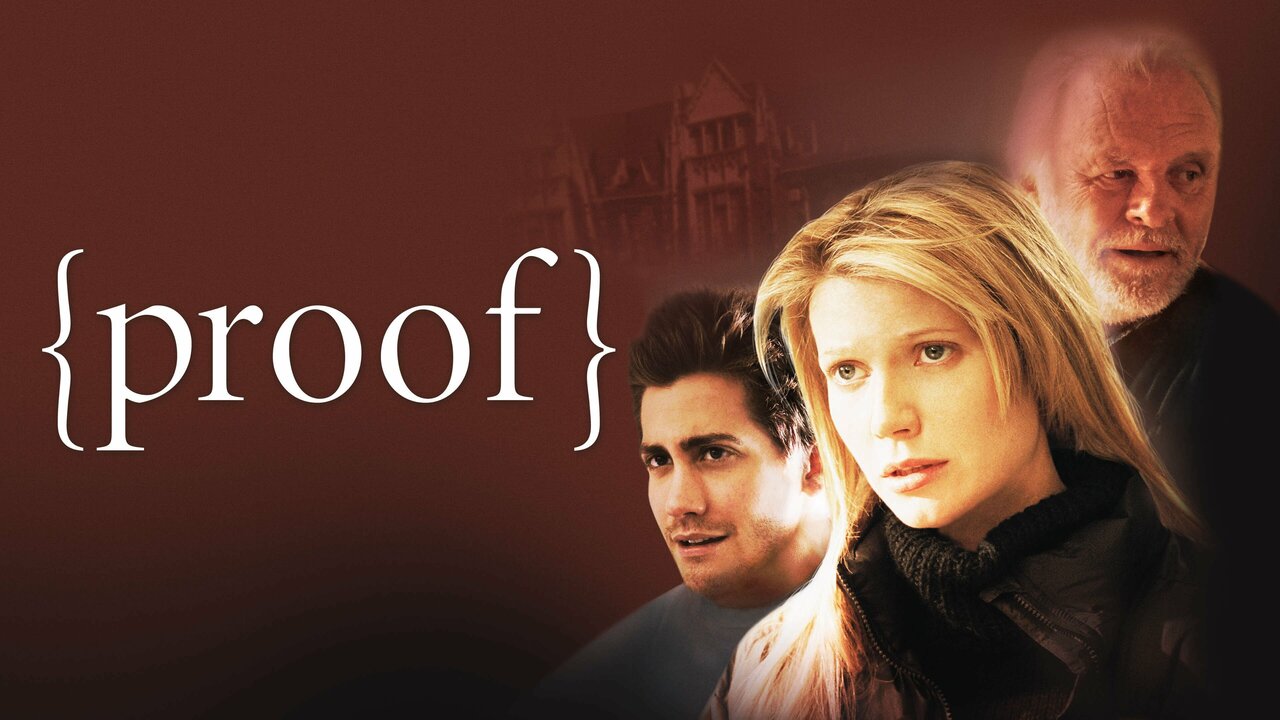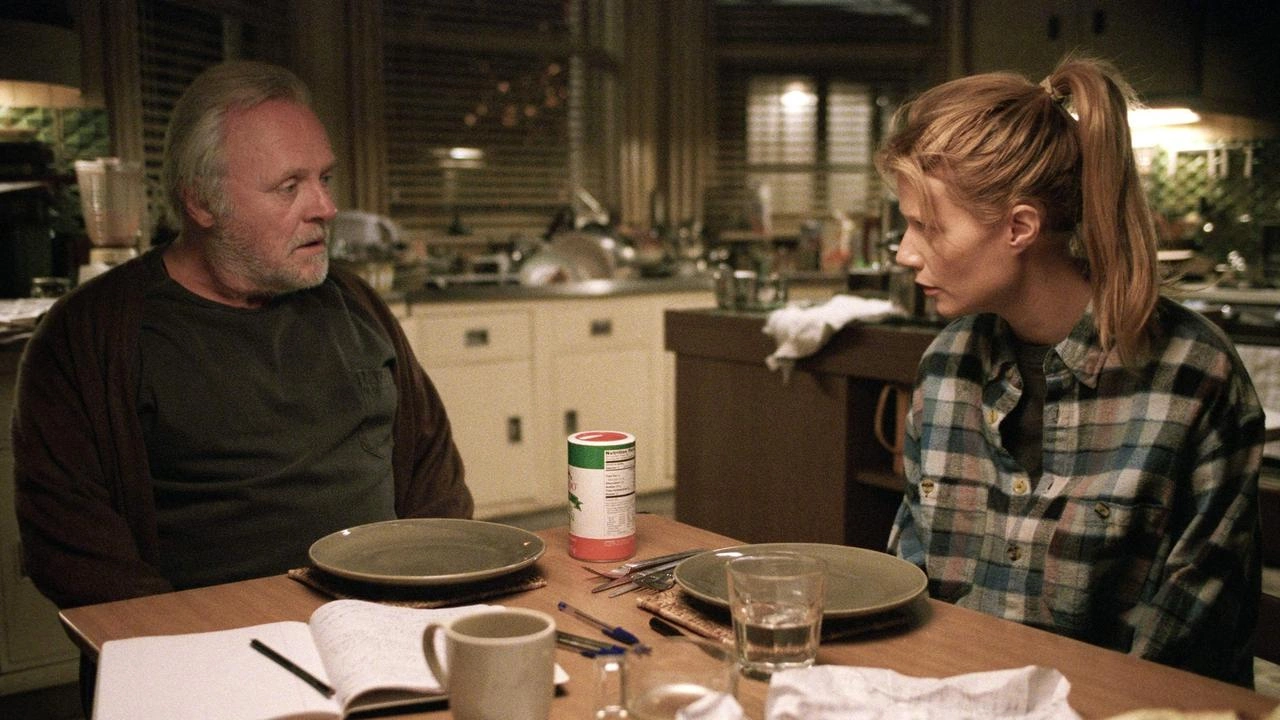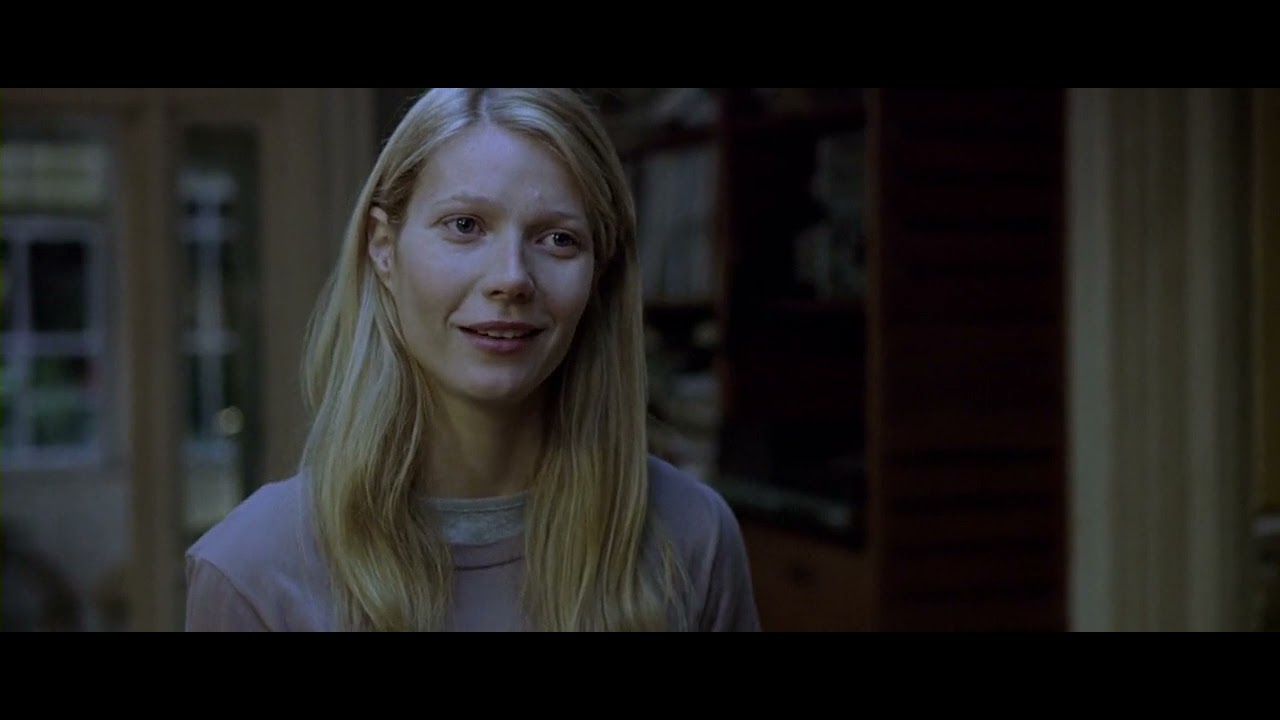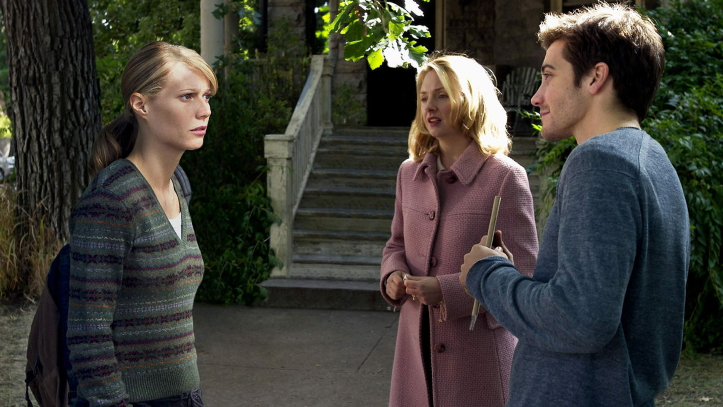Proof (2005)
- nguyentruong
- November 21, 2024

Proof (2005), directed by John Madden, is a compelling drama that explores themes of genius, mental illness, and familial bonds. Based on David Auburn’s Pulitzer Prize-winning play, the film stars Gwyneth Paltrow, Anthony Hopkins, Jake Gyllenhaal, and Hope Davis in a story that blends intellectual intrigue with emotional depth.
The film centers on Catherine (Gwyneth Paltrow), a young woman who has spent years caring for her father, Robert (Anthony Hopkins), a once-brilliant mathematician whose mind deteriorated due to mental illness. After his death, Catherine must grapple with her grief, her own fears of inheriting his mental instability, and her uncertain future. Her sister, Claire (Hope Davis), arrives to settle their father’s affairs, bringing a pragmatic but emotionally distant perspective that clashes with Catherine’s volatile emotions.
The discovery of a groundbreaking mathematical proof in Robert’s notebooks becomes the crux of the story. Hal (Jake Gyllenhaal), one of Robert’s former students, believes the proof could solidify Robert’s legacy. However, Catherine claims authorship of the proof, sparking debates about its origins and raising questions about her own capabilities and credibility. The tension escalates as Catherine struggles to convince others—and herself—of her brilliance while wrestling with self-doubt and the shadow of her father’s illness.
Gwyneth Paltrow delivers a deeply moving performance as Catherine, capturing her character’s vulnerability, sharp intellect, and simmering frustration. Her portrayal brings authenticity to Catherine’s internal battle between the fear of following in her father’s footsteps and the desire to step out of his shadow. Anthony Hopkins, as Robert, exudes both the towering intellect of a mathematical genius and the fragility of a man losing touch with reality. His scenes with Paltrow are some of the film’s most poignant, offering glimpses into their complex father-daughter relationship.
Jake Gyllenhaal brings charm and sincerity to Hal, a character who serves as both a potential love interest and a bridge between Catherine and the academic world she has distanced herself from. Hope Davis, as Claire, provides a pragmatic counterpoint to Catherine’s emotional turmoil, highlighting the contrasting ways siblings cope with loss and responsibility.
John Madden’s direction brings a cinematic quality to the stage play while retaining its intimacy and focus on character dynamics. The nonlinear narrative, which shifts between past and present, mirrors Catherine’s fragmented state of mind, drawing viewers into her perspective. Alwin H. Küchler’s cinematography uses muted tones and close framing to create an introspective atmosphere, while Stephen Warbeck’s subtle score underscores the film’s emotional resonance.
At its core, Proof is a meditation on the intersection of genius and madness, exploring how mental illness can be both a source of creativity and a source of fear. It delves into the societal pressures placed on women in male-dominated fields like mathematics, as Catherine’s assertions are met with skepticism despite her evident talent. The film also examines the weight of familial legacies, as Catherine confronts the dual inheritance of her father’s brilliance and his fragility.
Though critically acclaimed for its performances, especially Paltrow’s, Proof received mixed reviews for its adaptation from stage to screen. Some critics felt the film lacked the dramatic intensity of the play, while others praised its thoughtful exploration of complex themes. Regardless, its strong cast and thought-provoking narrative make it a worthwhile exploration of love, loss, and the pursuit of truth.
Proof is a deeply personal and intellectually stimulating film that balances its exploration of abstract mathematical concepts with raw human emotion. It is a story about finding one’s voice amidst doubt, navigating the complexities of family, and proving—not just to others, but to oneself—that brilliance and resilience can coexist.











